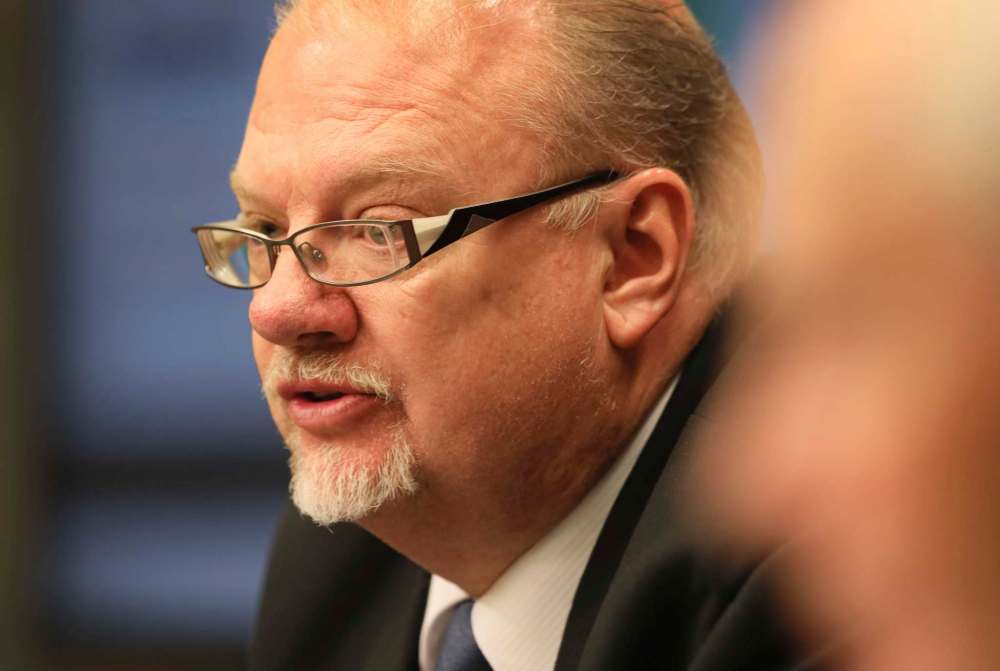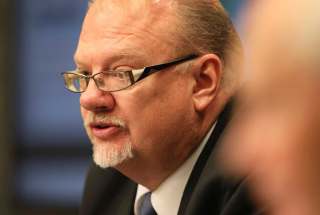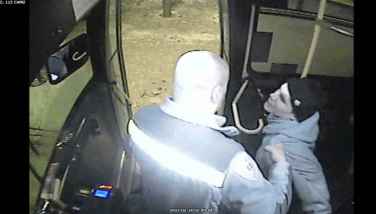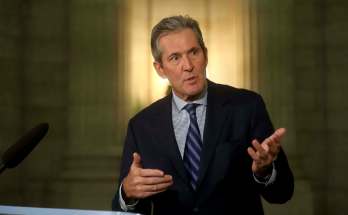Province wants sweeping public-education review to ‘ignite change’
Read this article for free:
or
Already have an account? Log in here »
To continue reading, please subscribe:
Monthly Digital Subscription
$0 for the first 4 weeks*
- Enjoy unlimited reading on winnipegfreepress.com
- Read the E-Edition, our digital replica newspaper
- Access News Break, our award-winning app
- Play interactive puzzles
*No charge for 4 weeks then price increases to the regular rate of $19.00 plus GST every four weeks. Offer available to new and qualified returning subscribers only. Cancel any time.
Monthly Digital Subscription
$4.75/week*
- Enjoy unlimited reading on winnipegfreepress.com
- Read the E-Edition, our digital replica newspaper
- Access News Break, our award-winning app
- Play interactive puzzles
*Billed as $19 plus GST every four weeks. Cancel any time.
To continue reading, please subscribe:
Add Free Press access to your Brandon Sun subscription for only an additional
$1 for the first 4 weeks*
*Your next subscription payment will increase by $1.00 and you will be charged $16.99 plus GST for four weeks. After four weeks, your payment will increase to $23.99 plus GST every four weeks.
Read unlimited articles for free today:
or
Already have an account? Log in here »
Hey there, time traveller!
This article was published 23/01/2019 (2513 days ago), so information in it may no longer be current.
Manitoba is embarking on its largest review of the kindergarten to Grade 12 school system in a half-century, but the inquiry will not delve into the prickly issue of public education funding.
On Wednesday, Education Minister Kelvin Goertzen appointed a nine-member commission to develop a long-term vision for public education in the province.
Included in the commission’s sweeping mandate will be to develop recommendations that “inspire excellence in teaching and learning,” with the view of meeting future labour market needs as part of an “integrated lifelong learning approach.”

The panel will review how teachers and school leaders can be more effective in their roles and recommend ways to “develop a stronger sense of shared accountability for student learning.”
The commission will examine governance structures to determine whether school divisions ought to be consolidated and, if so, how.
The independent review will be jointly led by Janice MacKinnon, a former Saskatchewan NDP cabinet minister, and Clayton Manness, who served as finance and education ministers under former Manitoba premier Gary Filmon.
They are to produce a report by February 2020.
Reaction to review launch
Chris Broughton, Winnipeg School Division chairman said Wednesday there is some apprehension among teachers and parents about the government’s intentions. He said the province has made no secret it’s in a fiscal belt-tightening mode.
“I can only take the government at its word that it’s going to be an independent review and that they’re going to put the interests of students and families first. And I hope they live up to that idea.”
Chris Broughton, Winnipeg School Division chairman
Broughton said Wednesday there is some apprehension among teachers and parents about the government’s intentions. He said the province has made no secret it’s in a fiscal belt-tightening mode.
“I can only take the government at its word that it’s going to be an independent review and that they’re going to put the interests of students and families first. And I hope they live up to that idea.”
He said the WSD looks forward to making a presentation before the commission.
“I think there’s incredible work being done in the education system, day in day out, by teachers and staff. And I think the sooner that this government can show what its intentions are, the sooner that some of the apprehension of teachers and parents can be addressed.”
Dougald Lamont, Manitoba Liberal leader
Lamont took issue with the backgrounds of the commission appointees, most of whom haven’t worked in Manitoba’s K-12 education system.
“I think if you just look at the qualifications of people involved, it’s overwhelmingly people who work in finance and (human resources) — and nobody from education. So if it were more about education, you should have a wider range of people in order to be able to give that argument any credibility.”
(Two of the nine commissioners have secondary-school teaching experience, according to biographies supplied by the government. Three more worked in post-secondary education.)
Lamont didn’t object to a K-12 review, however, noting the education system does need improvements.
“I don’t dispute that. But it needs to be about the quality of education and the kind of education our kids are getting and not just about saving money. But that seems to be the single most important thing when everyone you pick — it’s a rainbow of Tory donors, candidates and people who work in finance and HR.”
Wab Kinew, Manitoba NDP leader
Kinew issued a statement accusing the government of returning to the Progressive Conservative party’s “old playbook (of) cuts.”
“Kelvin Goertzen, who launched a plan to close (hospital) emergency rooms, has recruited a Filmon-era education minister to finish the job he started in the 1990s. Under Clayton Manness, the Conservatives cut hundreds of teachers, cut school funding, and made class sizes way bigger. His cuts are still being felt by families today, and we cannot allow it to happen again.”
Alan Campbell, Manitoba School Boards Association president
Consolidating the number of school boards — or eliminating them altogether– would bruise local democracy, Campbell said.
“It’s a direct reduction in community voice and public representation in the governance of education.”
In Nova Scotia, the provincial government eliminated school boards last year, appointing a provincial advisory council on education instead. Manitoba Education Minister Kelvin Goertzen said he wouldn’t take any idea off the table Wednesday, which would include a similar move.
Campbell said such a plan would do more harm than good, as limiting the voice of individual citizens by limiting the role or removing the role of the school board is “a significant hit.”
Gord Delbridge, CUPE Manitoba president
The Canadian Union of Public Employees’ Manitoba chapter said in a news release it was alarmed by potential “radical changes” coming to the K-12 system as a result of the review.
“Goertzen is already musing about completely eliminating local democratic control of our education system and centralizing the entire education system,” Delbridge said.
“We don’t think that’s good for students, our communities, nor the front-line workers who dedicate themselves to ensuring safe and supportive learning environments… The idea that some Conservative appointees in a downtown boardroom know better than community leaders elected by their neighbourhoods is preposterous.”
CUPE represents about 6,000 education workers in 35 school boards across Manitoba.
“It’s a big undertaking, not just because it hasn’t been done for 50 years… but because the system is big and the system is important,” Goertzen told a news conference Wednesday.
While the commission’s scope is broad, it won’t include the task of developing a new funding formula for education, disappointing those who had hoped the province was prepared to examine the considerable burden of education funding faced by property owners.
“We need to figure out, first, what the system is going to look like and what we’re paying for before we determine how we’re going to pay for it,” Goertzen said.
“Do you have (fewer) school divisions? Do you have school divisions at all?” he mused at a news conference, flanked by the commission’s co-chairs.
MacKinnon, a historian and former finance minister, said the commission’s prime focus will be to consult Manitobans.
Education data dump
The Manitoba government released five years’ worth of education data Wednesday, to assist the review commission in its deliberations.
The province published a report on literacy and numeracy in Manitoba, as well as high school graduation rates broken down by school division from 2013-17.
The Manitoba government released five years’ worth of education data Wednesday, to assist the review commission in its deliberations.
The province published a report on literacy and numeracy in Manitoba, as well as high school graduation rates broken down by school division from 2013-17.
“I expect that we’ll have more data to release in the future,” Education and Training Minister Kelvin Goertzen said.
“That is partly to fulfill our commitment in terms of transparency, but also to inform the commission in their work… (And) to inform Manitobans about the challenges that exist within Manitoba and the education system, so that they can be prepared when they’re making presentations.”
The K-12 review will be begin immediately.
In the meantime, concerned citizens can review the Literacy and Numeracy in Manitoba: Setting the Context report online, which contains information compiled from a January 2018 provincial summit. It includes long-term targets for literacy and numeracy, such as Grade 8 students performing among the highest-ranking provinces in reading by 2025; and an 80 per cent average mark on Grade 12 provincial tests in English and math by June 2028.
Also available online, the high school graduation rates, which encompass 37 divisions and funded independent schools. They show 78.9 per cent of Manitoba students graduated on time, as of June 2017.
The Division scolaire franco-manitobaine had the highest on-time graduation percentage for June 2017, with 92.3 per cent. The Frontier School Division had the lowest on-time graduation percentage (42.7 per cent).
The 2018 results are expected to be posted later this year.
In October, the province also released Grade 12 provincial test results by school division for the first time in nearly 20 years.
Goertzen has mulled whether the government should release the test results by school as well — something that could occur after the K-12 review, he said last fall.
“The process will be open. It will be engaging and it will be accessible,” she said. “I can tell you there are no predetermined outcomes here. We are initiating this task with a blank slate. We’re here to listen to what Manitobans have to say to us about their education system and what is important to them about that system.”
Manitobans will be able to attend public meetings, participate in online surveys and make written submissions. The consultation process is expected to begin almost immediately.
The government has set aside $700,000 for the effort.
“Today, the school bus hits the road,” said Manness. “There’s going to be some hard steering along the way. We know that.”
He said a comprehensive review of the education system is a vast undertaking. “We’re going to try and concentrate on a reduced number of themes. We can’t do 100 themes, but we’d like to do 10.”
Meet the commissioners
Terry Brown of Winnipeg is an owner and partner of Legacy Bowes Group, leading its business advisory services. He’s a past chairman of the Aboriginal Chamber of Commerce and past policy committee member for the Manitoba Chambers of Commerce.
Terry Brown of Winnipeg is an owner and partner of Legacy Bowes Group, leading its business advisory services. He’s a past chairman of the Aboriginal Chamber of Commerce and past policy committee member for the Manitoba Chambers of Commerce.
Mark Frison of Brandon is president and chief executive officer of Assiniboine Community College, overseeing 3,200 full-time students, 350 full-time employees, and a $46-million budget. He is also chairman of the Brandon Police Board.
John Daniel Lees of Steinbach is a former science teacher at Steinbach Regional Secondary School who also taught English overseas. He holds a bachelor of science degree in zoology and a BA in political science from University of Manitoba.
Janice MacKinnon (co-chairwoman) of Canmore, Alta., served as a cabinet minister under then-NDP premier Roy Romanow in Saskatchewan. A member of the Order of Canada, she holds a PhD and master’s degree from Queen’s University. She’s authored three books on public policy issues. She was a member of the National Task Force on Financial Literacy.
Clayton Manness (co-chairman) of La Salle was MLA for Morris from 1981 to 1995, and served in then-Progressive Conservative premier Gary Filmon’s cabinet in the finance and education portfolios. He holds a master of science in agricultural economics and worked in the grain industry prior to politics.
Jill Quilty of Thompson is a lawyer with Law North Law Corporation and practices criminal, divorce and family law. She previously worked as an instructor and co-ordinator at College of the North Atlantic in Newfoundland and Labrador. She served as a member of the Truth and Reconciliation Commission of Canada’s academic working group, the ad hoc response committee for gender discrimination, and the Indigenous, Black and Mi’kmaq standing committee.
Laurel Repski of Winnipeg served as vice-president (human resources, sustainability and audit) at the University of Winnipeg from 2006 to 2018. Prior to that time, she was vice-president of HR at the Canadian Wheat Board. She holds a certificate in HR management from the University of Manitoba.
Denis Robert of St. Adolphe is a retired principal, with 32 years of experience in Manitoba schools. He spent the final 23 years of his career at Collège Béliveau, one of Canada’s first French-immersion schools.
Ian Wishart was elected as MLA for Portage la Prairie in 2011. He served as Manitoba’s education minister until August 2018, and now is legislative assistant to Education Minister Kelvin Goertzen. He holds a bachelor of science in agriculture from the University of Manitoba and is a former president of Keystone Agricultural Producers.
Jonathan Alward, director of provincial affairs with the Manitoba branch of the Canadian Federation of Independent Business, said he was disappointed the commission would not tackle the funding formula.
In a series of tweets, he said the vast majority of Manitoba small-business owners feel they are paying more than their fair share of school property taxes.
“While I understand that we must know what we are funding, it is just as important to review the funding model. We need a firm plan to review the education funding model once the (first) review is complete.”
Manitoba School Boards Association president Alan Campbell said he agreed with the government a review of the education funding formula should occur after the commission completes its work.
“The formula itself and how funding is calculated needs to be reviewed definitely,” Campbell said. “It’s a complicated set of formulas that involves multiple levels of government and agencies… We certainly would encourage, and will communicate our encouragement, that the government would keep a funding review on the table in the future.”
It’s unclear whether the province will implement any of the commission’s recommendations before the next election, scheduled to take place Oct. 6, 2020. The government said Wednesday it would release the report publicly in March 2020, once it has reviewed the document.
Meanwhile, the government will announce today how much funding it will provide to school divisions in the coming year.
larry.kusch@freepress.mb.ca
jessica.botelho@freepress.mb.ca

Our newsroom depends on a growing audience of readers to power our journalism. If you are not a paid reader, please consider becoming a subscriber.
Our newsroom depends on its audience of readers to power our journalism. Thank you for your support.
History
Updated on Wednesday, January 23, 2019 6:32 PM CST: Writethrough
Updated on Wednesday, January 23, 2019 8:49 PM CST: Final version











